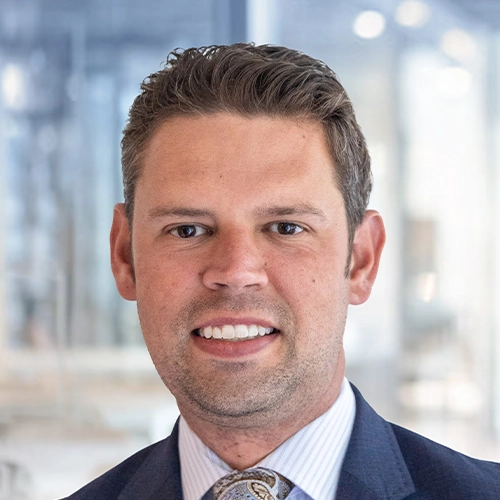
If your CHRO isn't setting your board agenda, you've got the wrong agenda

As much as it is a necessary topic to discuss, there isn't exactly an uproar demanding more articles about CHROs serving on company boards. When I put out my first article on this topic 16 years ago, it was hopelessly premature. But in the last five years, the world has changed to the extent that every major challenge facing your organization, from AI to immigration and everything in between, is people-centered and requires clear and confident leadership from your CHRO. CEOs, CHROs, and boards need to wake up, now. Your CHRO should not just be on your board (and others) but driving its agenda. If you let them steer, you’ll be heading in the right direction, but if you continue to sideline them, you’re exposing your organization to massive risks. Your choice will determine your destiny.
Why should a CHRO be on the board?
JD: I think the real question is, why not? Today, people issues are the biggest facing any board. Return to office debates, building culture, tackling concerns over new immigration laws (especially here in the US) – and these are just three daily topics – all need a sustained people and talent perspective that only CHROs can provide. If human capital is as important as financial capital, then you need that type of expertise in your modern boardroom. Stacking your board with CEOs and CFOs isn’t going to give you the diversity of thought you need, and you risk overlooking the people implications of key strategic decisions, which will put you at a serious competitive disadvantage.
DK: Most CEOs are surrounded by yes men, being told what they want to hear all day, every day. Often the exception to that is the CHRO. When you have a board that is filled with CEOs and CFOs, you have an entire room of people who are usually told what they want to hear and lack the investigative skill of diving deep into an organization to understand how people are feeling, where’s the culture at right now, what talent and succession planning look like. So, if that’s the only mirror from the organization to your board, you’re not getting the full picture on what are usually complex people, and therefore business, issues.
Take the proposed changes to immigration laws in America. If you are a CEO, and the survival and growth of your business hinges upon your ability to attract and retain foreign talent, you need someone who is helping you think through how you’re going to do that – where you might need to base your future operations etc. These aren't HR recruitment issues, they are fundamental problems your organization needs to solve to remain in business. And if there’s no one in your boardroom with that expertise, asking those questions, and pushing for solutions (and in our experience, most boards don’t have this) then you’re sleepwalking into oblivion.
How can a CHRO help to architect value?
DK: One CHRO described himself to me, and I love this analogy, as the quintessential orthodontist. He applies pressure and keeps doing so until your teeth are aligned. It’s about applying pressure to get the information the Board needs and pushing it to make the right decisions. A board is there for governance and advice. While a CFO on it can look at the financials, and a CEO the strategy, someone needs to be able to say, hey, when we meet next quarter, let’s talk to the CEO about spending time with people five levels down in the organization, walking the halls and interacting with employees to get a true temperature check. CHROs are uniquely positioned to go deeper into your organization, reveal what’s really going on, and bring that back to your board. That’s a fundamentally different, and essential, skill CHROs bring that CEOs and CFOs don’t.
As a CHRO, you’re also in charge of the people agenda for your company. This means looking at your leadership team holistically as an organizational asset and improving their value to your business by helping them develop and get on boards.
And for you personally, you should be pushing to get on a board/boards for the incredible opportunities it brings to add value across every element of strategy.
JD: Human capital is a key strategic lever for any business to achieve its goals. If you don’t have good people, you don't have much to stand on. To help you make the right decisions you need someone who understands the complex macro situation in the modern world, including government regulations, emerging talent pools, generational differences – the list doesn’t stop. When every issue hitting the boardroom is people-centric, you can’t address any of them effectively if you don’t have a CHRO on your board with a contemporary view.
Here's an example. Last month, Meta made a $14.3 billion investment in AI company Scale and recruited its CEO Alexandr Wang to join a team developing ‘superintelligence’ at the tech giant. The board must endorse these types of deals. Not having a strategy and plan for how you’re going to integrate such talent seamlessly into your business means you risk burning money, tanking your stock price, and cratering your reputation.
Why is this becoming a hot topic right now?
JD: I spoke to a board director recently who told me his three top priorities were people, people, people. There are many reasons for this, but the main ones right now are AI and the disruption it’s causing to workforces, and immigration. As a result, we’re seeing some bigger organizations (Fortune 500+) waking up and putting CHROs on boards, but many (especially at the medium-smaller end) reacting slower, and exposing themselves to unnecessary business risk.
DK: There's also the availability of acquiring CHRO or ex-CHRO talent that there never was before. Whether it’s Kevin Cox, Lucien Alziar, Michael D’Ambrose, Tim Huval, or Peter Fasolo, you have world-class CEOs of HR who have served on countless boards and bring a wealth of experience that is unmatched. The timing is perfect. Boardrooms have never needed this talent more, the talent available has never been more plentiful, and is the best we’ve ever seen. Also, while DEI considerations remain critical, the focus is now firmly on who is the best candidate, regardless of gender, ethnicity etc.
If you as a Board member sleep on this golden opportunity, you’re self-harming your organization.
How can a CHRO become board ready?
JD: Our Board Services solution includes Board Sync, which offers an alternative board solution for CHROs looking to get into the board space. Currently, it’s only open to a small number of selected executives, who we work with on a long-term basis (typically 12-18 months) to prepare them for getting on a board/s. We partner with these executives to help them identify boards they want to be on, design a strategy, and coach and guide them through the process until they’re successfully elected.
Over time we will expand our offerings in the board space through individual and cohort-based programs to build CHROs’ capabilities to drive the agenda as a board member, working with our Executive and Leadership Coaching practice.
Besides our solution, my advice to all our clients and other CHROs is – stop waiting and get going. The sad reality is CHROs are still being overlooked by boards, so you need to take control of what you can, including:
- Getting involved with your organization’s board as much as possible – presenting, interacting regularly between meetings, going to events.
- Leveraging your networks.
- Engaging with peers, within and outside your industry.
DK: The best training ground for a CHRO to be on a board is delivering world-class service to your board. Don't be a wallflower, stand up, be heard, and have a point of view. Drive the board discussion, and I don’t mean just about compensation. You should be part of the broader conversation about strategy, M&A, culture, the dynamics shaping the future of your business.
As a CHRO, it’s your job to be pushing CEO and leadership team succession planning with the Board, as Cox did at American Express so fearlessly and successfully. By doing so, you become an integral part of the board agenda, and you can take those skills to add massive value as an outside director on another board. But if you haven’t had that expose to your own board, it’s going to be difficult for you to make the transition to another one, and a harder sell for your search partner.
Really, if you’re not setting your board’s agenda, then:
- You’re not doing your job properly.
- Your organization is missing out.
- You’re losing a critical developmental opportunity.
Why are so many companies still not putting a CHRO on their board?
DK: It’s two-fold:
- CHROs need to step up and engage with their boards. This is the moment you’ve been waiting for. Every issue in your boardroom is people centric and you have a uniquely value-creating lens on it. If you’re not making your voice heard for whatever reason – for example, you’re intimidated by the CEO – then you need to reach out and get support, because your impact is essential.
- The average board member is a retired CEO or CFO. They may well not have seen or experienced a great CHRO before, so they don’t know what they’re missing and default to what’s familiar and comfortable.
JD: I can't tell you how many times I’ve worked with boards who’ve initially pushed back on having a CHRO because they didn’t see the need. Yet when they put a CHRO on their board, 12-18 months later they call me to say, "We didn't realize we were getting so much more than just an HR perspective; they’re adding value and impacting the boardroom in so many different ways."
How are the most forward-looking companies and their boards using their CHRO?
DK: CEOs and board chairs that are ahead of the game understand that it is in their organization’s best interest to have their CHRO on their own board, and/or outside ones, so they are prepared to invest in their development and champion them to their boardroom network. In doing so, their CHROs are learning, gaining great experience, and bringing all their insights back in-house. This also helps to retain key CHRO talent, of which there is a shortage.
JD: The leading boards we’re working with on this issue are all actively engaging with their current sitting CHRO. They're looking to them as a partner, confidant, and consigliere the same way their CEO does.
As an incumbent CHRO, what are the challenges of having an ex-CHRO on your Board?
DK: This is one of the challenges that has stymied progress in getting more CHROs on boards. Some incumbents have felt intimidated by having ex-CHROs in their own backyard. My message is – get over it. And remember:
- CEOs have board filled with ex-CEOs.
- CHRO is the second loneliest job in the world. Having someone in the boardroom who speaks your language and understands the challenges you're dealing with is priceless, as many will attest to.
JD: There’s this perception by some CHROs that it's restrictive, with someone looking over your shoulder and talking to your CEO behind your back. But the reality is, if your board respects the HR role enough to have an HR perspective in its boardroom already, that means that people, talent, and culture issues are at the forefront and the organization is already so far ahead of its peer that it should be hugely additive for all parties.
What is your message to CEOs and boards who still aren't getting it?
DK: This decade, the world has changed so fast, and the pace is not letting up. Every day there’s a fresh issue – new wars breaking out, racial injustices, tariffs – and they’re all people-focused challenges that directly impact your business. Your organization needs you on its board (and others) to provide strategic direction, help it solve fundamental business problems (talent, culture etc), and ensure it continues to thrive amidst growing complexity and uncertainty.
For example, Prudential with Alziari as CHRO on its board handled three CEO successions in eight years flawlessly, maintaining the company’s performance, reputation, and internal talent. CEO succession is notoriously hard to do, many organizations fail, but by having an experienced and respected CHRO on its board, Prudential got it right every time.
By contrast, if you don’t have a CHRO on your board you run huge risks to culture, brand, and performance. There are countless examples, including Heinz Kraft, Harley Davidson, and Boeing to name just three high-profile companies who have found to their immense costs the irrecoverable damage that can be caused when you don’t have a CHRO on your board guiding your people – and therefore business – agenda.
This is the moment HR has been waiting 50 years for. No more crying about wanting a seat at the table. As a CHRO, your value to a board has never been higher. So don’t wait for an invitation, start setting the agenda from within. This is your moment to shine.
And to CEOs and boards, we say – wake up. Every major challenge you face right now is people-centered, and the experience you need to help you manage through them is staring you in the face. If your CHRO isn’t driving your board agenda, you’ve got the wrong agenda.
Meet the Author



.webp)
